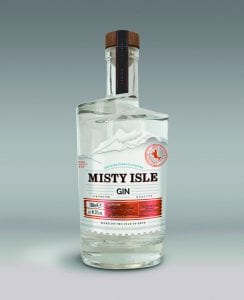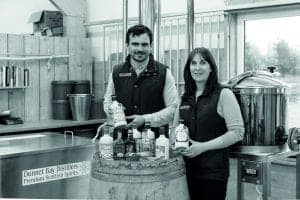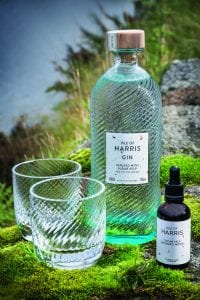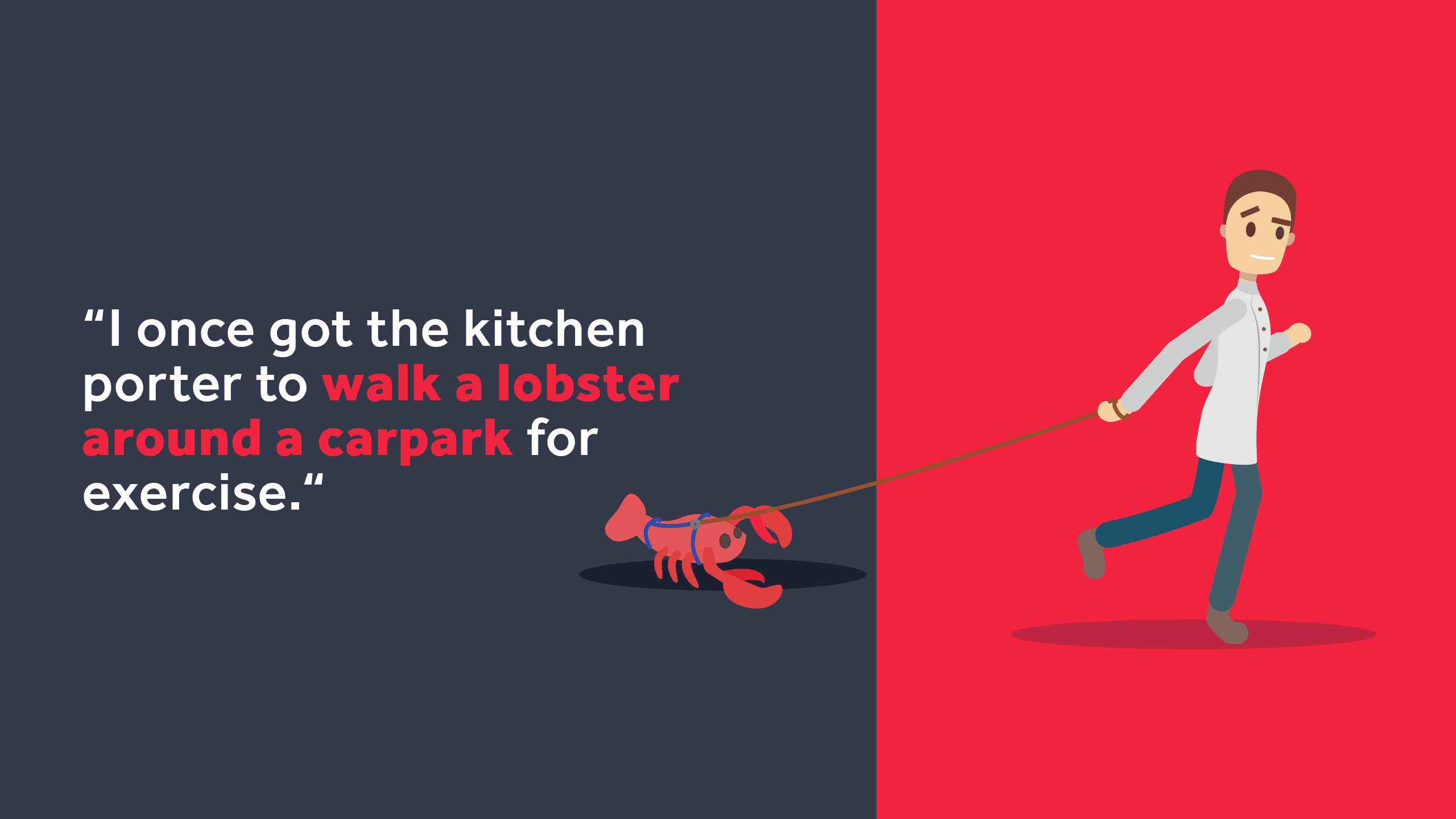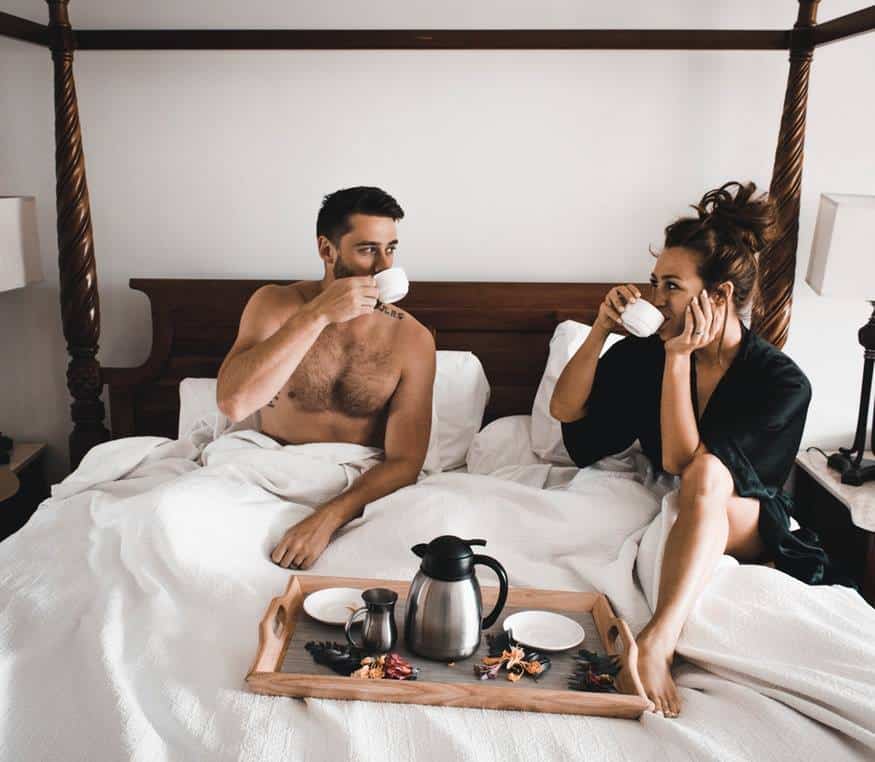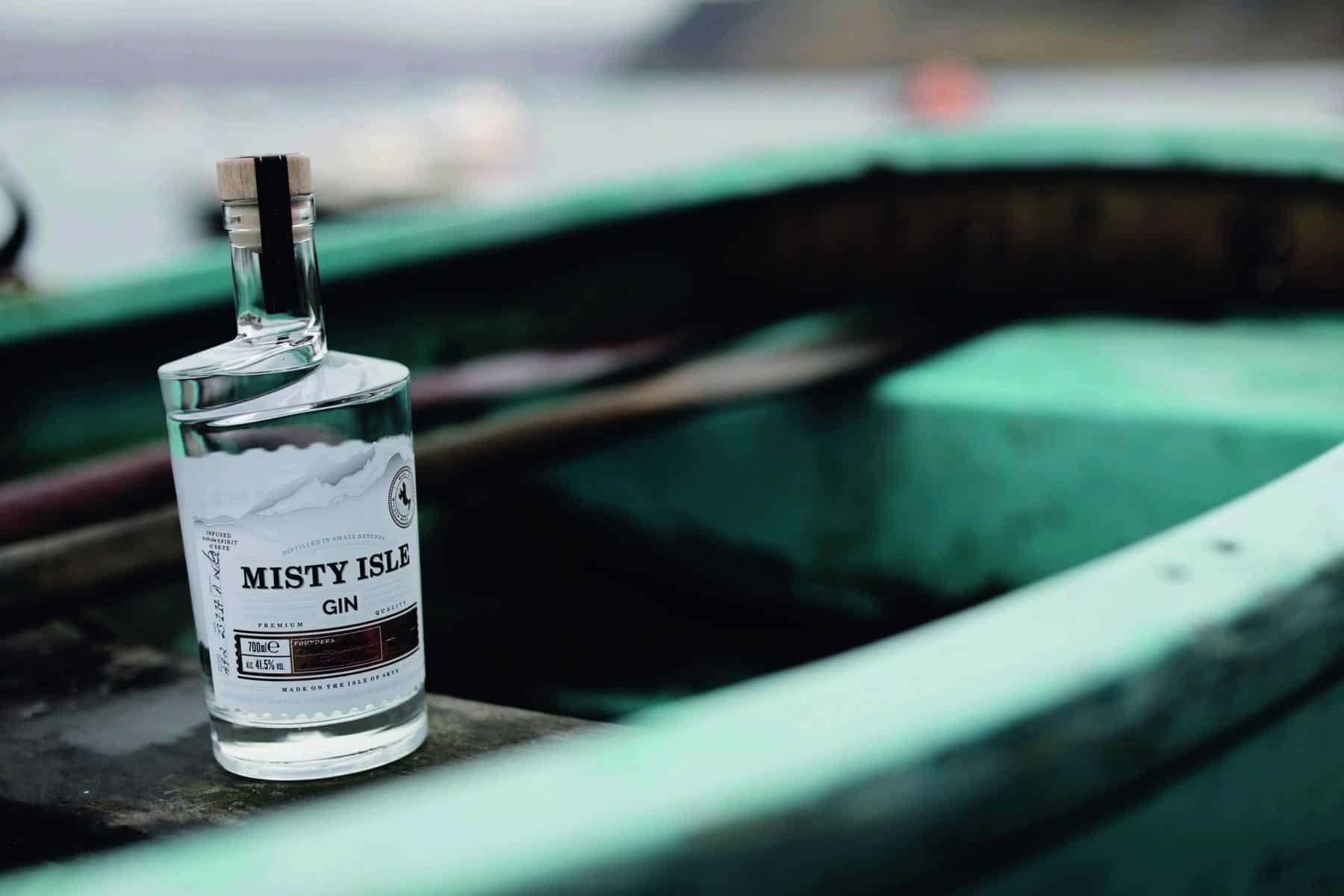
The potency of a backstory
The age of premium spirits is upon us. Craft distilleries have come of age, bringing disruption to the traditional spirits marketplace. Bill Lumley considers how that may affect a B&B bar
Where once a small cluster of familiar brands would feature on the bars of inns and guesthouses, today the bar shelves are typically populated with a wide choice of appealing spirits with amazing labels and backstories to match.
B&B appeal
As consumers’ expectations of a comprehensive spirits selection grow, so pressure grows on B&B owners to offer their guests a broader range of choice. Rising to meet this challenge makes perfect commercial sense, even to a small B&B whose bar may be open for guests for a few hours each week – for the simple reason that it will generate higher revenues.
The likelihood is that guests in a relaxed mood spending a couple of hours in the bar in your luxury property will be receptive to the prospect of sampling a few 30ml drams of different spirits.
Consumer taste
Browse the shelves of the alcohol section of your local supermarket today and you are likely to see a host of niche brands from the that would not even have been considered as worthy of stick just a decade ago or less. The reason for this is the evolution in consumer taste.
As well as the Absolut, Smirnoff and Russian Standards there are brands such as Black Cow or Whitley Neill Rhubarb. Vodkas previously only on display at trade fairs and feted in local hospitality venues are now on sale in Sainsbury. This shows how much domestic spirits retail dynamics have changed.
The back stories are often as potent as the spirits themselves and are certain to have been used in the bidding to win shelf space in large national supermarkets. Buit there is vast competition with the number of distilleries growing rapidly in England and Scotland, while the number is Welsh distillieries has exploded in the past few years.
Eye-catchingly last month Misty Isle Vodka became the first vodka to be distilled on the island.
The small independent distillery’s advance into vodka follows its successful foray into gin almost three years ago.
Distillery co-founder Thomas Wilson tells Luxury Bed & Breakfast: “We always had the idea of making vodka since we first started distilling gin but, until now, we simply didn’t have the time to get into it properly.”
Whatever the spirit, provenance is everything to the distillery, he says. “Every part of the production process for Misty Isle Vodka, from distilling right through to bottling and labelling, takes place in Portree. Vodka is a pure spirit with no flavourings in it, so it is obviously something we as a distillery could turn our hands to making,” he adds.
Misty Isle Vodka is a premium product that is both triple-distilled and filtered in a process takes a few weeks per batch, which differentiates the drink from many other spirits brands. The result is a very smooth-tasting vodka. “Testing it we have found many people enjoy drinking it straight over ice or maybe with just a little bit of lemon wedge,” says Thomas.
He is non-committal when it comes to forecasting how the vodka will fare in today’s market. “Who knows?” he replies. “To try and push the likes of Smirnoff off a shelf would be a hard task even for a big distillery and we are a very small company run by just myself and my brother so going forward if people would care to stock it, we would be absolutely grateful.”
The distillers have kept the price point is deliberately low compared with many other premium spirits because they wanted to make it accessible to as many people as they could and to encourage bars and inns to stock it as their house pour.
Scottish spirit
Premiumisation today is as much a central theme to the spirits market as bagpipes are to the Scottish Highlands.
When Scottish products were released four or five years ago such as the like of Rock Rose, it started a shift in people’s mindset to trying something different and when Harris first came along, the premium spirit seemed to change the market for Scotland, he claims, paving the way for Isle of Skye Distillers’ gin range including Misty Isle Gin, Tommy’s Gin and Misty Isle Mulled Christmas Gin.
“Even before you taste it you’re in love with it when you see the bottle,” he says. “It’s from a wee island on the northwest of Scotland just like us.”
Perhaps due to this new range of choice, he says, consumers today are noticeably less likely to go for the standard champion gins. Bars, hotels, guest houses and B&Bs used to stock fantastic products like Gordon’s Tanqueray and Bombay Sapphire but now Scottish gin is riding high and there is great demand for small batch products, he says. “People today want to try something different. They will still drink their favourite Gordon’s or Bombay when they want to, but they also want to have a try of the other premium brands, like this one from the Isle of Skye. They then notice it tastes really good, with a lot more flavours going on compared with other products.
“Then they may look at the bottle and they see that a lot of thought and effort has gone into its making and presentation,” says Thomas.
Premium vodka
The market for premium vodka is not yet as mature as it is for whisky and gin, Thomas suggests, but it is nonetheless on the rise. “Vodka is a flavourless pure spirit, so there is not very much going on in it when you taste it. But Misty Isle is smooth – you don’t get that throat burn from the heat that comes through with many other vodkas when you drink them.
“Being a smooth drink, it lends itself to a little more imagination. With a gin you can put different mixers in, but you kill the flavourings with botanicals when you start sticking in things like lemonade, bitter lemon or orange juice: you need something pure to be able to taste the botanicals.
“By contrast with vodka you put a mixer in and it is the mixer you taste, but the harshness or power of the vodka depending on how it has been made can affect the pallet and the nose,” he explains.
He says Isle of Skye Distiller’s goal had been to create a vodka smooth enough that when you sip it you still taste the alcohol but you don’t get the burn that characterise Russian vodkas.
“It’s not for everyone,” he says. “I personally don’t like straight alcohol. When we make our gin, we thimble-test every litre that comes in to make sure the flavour is coming through. I don’t like it straight, I need a mixer because that is just the way my pallet is.
“That’s why when we made the Misty Isle vodka we wanted to make sure there was something that still had a bit of bite to it yet was also smooth enough for the person that didn’t really like that harshness.
“We wanted be able to add a wee bit of water just as you would with a good malt whisky, to soften that alcohol hit as you are drinking it, and it seemed to work.”
Demographic rules
This less harsh taste may somewhat broaden the demographic appeal of Isle of Skye Distillers’ new vodka to appeal to the female drinker, who often prefers the less harsh edge, but he says vodka has already cracked that market.
“If you look at all the people that drink alcohol, it’s women that are more down the vodka route than they are gins,” he says. “When we carried out market research four years ago in Edinburgh before we opened our distillery, it was revealed that men between 25 and 55 that were the predominant gin drinkers. This was a big shock, because the perception was that men don’t drink gin.
“What it shows it that It is hard to categorise what men and women prefer to drink. Today everyone is more open to trying new things, whereas before there would be people who wouldn’t even touch a whisky when offered the chance to taste it.
Try before you buy
Indicative of this shift to greater flexibility in the spirits market is the behaviour of visitors to the kind of gin tastings that are held right around the country where they taste different small amounts of different products from a wide range of craft distillers. A preparedness to try a sample of a spirit they woud not normally choose to drink has opened up a try-before-you-buy market, he says.
“People say, ‘You know I didn’t like rum until a minute ago but I just tasted that one there from Glasgow and It really good so I’m going out to buy a bottle.’
“That’s how we got into gin – we didn’t drink it: at the time we were whisky people and thought we’d try a gin, and that’s what sparked the idea. We then tried pretty much every gin you can think of in Scotland and a fair chunk of the English ones as well. Today therefore, from a demographic perspective it is hard to say which ones are going to be successful. But I certainly think the new vodka will be success with women.”
He adds that most of the online sales of the new vodka have been to female customers.
Other spirits
Besides diversifying into vodka, the company is in the early stages too of producing liquors and hoping to launch its first rum in early spring.
It is somewhat curious given their location that they have not even considered making whisky because they held no such ambition. But he says they have had a few enquiries and now that they have learned there are reports of a pending global shortage of single malt whisky they may consider it in the future. But for the time being they have enough on their plate.
“The distillery is very small, the size of a three-bedroomed bungalow. Within our first month of opening we outgrew it just by making gin. If we are going down the route of whisky we’d have to find new storage, cooperage and so forth. So that’s a long game in the future – it’s not in our plans at the moment,” he says.
Many distilleries are whisky focused but have started making gin because the margins were shrinking with whisky, he says. “They switched to gin and it rescued them overnight,” he says. He cites Benromach, which launched Red Door Gin. The distillers took a long time to come up with a gin, he says, and one day they realised that their distillery making whisky could be adapted to make gin as well.
“It opened up the bracket,” he says. “The problem with Scottish gin now is that there is so much of it because of this trend for existing distillers to diversify into the market.
“We often get enquiries from people who want to make their own gin. I tell them before they go rushing in and spending their life savings on it they should bear in mind that when we started there were perhaps 12 gins on a bar shelf and today there are hundreds from Scotland alone,” he says.
“Yes, the bar might take it on and sell it, but where we used to sell two or three bottles every couple of days in a particular bar in Glasgow the rate has dropped to every couple of weeks, because the consumer has so much more choice.
“Unless they choose to stick with a brand that they know and love then it is going to slow everyone down as people are trying different drinks continually because there is so much choice.”
Distribution choice
Isle of Skye Distillers uses different distributors that work in different areas of the UK, but they also distribute direct to customers. He says this can often work out better for customers such as B&Bs that only want one or two bottles for their bar since it may not be cost-effective for them to deliver just one case, and some distributors won’t mix cases.
“We sell a lot online and we self-distribute as well, but we do use distributors because some bars and restaurants already have accounts,” he explains. “We’re situated on the Isle of Skye, so obviously there is an associated carriage cost, but with a new customers we usually cover the carriage cost ourselves. And we don’t impose minimum order levels. If you want one bottle we’ll send you one bottle. It’s all about getting the customer what they need. We’re very much of the ‘plant a seed and grow a tree’ philosophy. We nurture our relationship with our customer,” he says.
The distillery sells locally to regular customers on the island itself, where it markets 200ml bottles and miniatures as well as full-sized bottles of gin. “Many of the B&Bs and guest houses put an Isle of Skye Distillers miniature in every guest room as part of the welcome pack. They used to buy a couple of bottles of wine from the supermarket and leave them in the rooms, but the guests often wouldn’t drink them.
“Now B&Bs in Fife and Edinburgh are ordering our local Skye product just so they can give a Scottish product to their visiting guests,” he concludes.
Vodka sales – on trader versus off trade
The Alcohol category is worth £16.8bn, an increase of 3.9% in value sales over the last year with volume sale remaining flat (+0.1%), according to the Wine & Spirit Trade Association (WSTA). The increase in price per litre (+0.18p versus last year) continues to play a crucial role in driving category growth.
Vodka had a good start to 2018, with growth in both volume and value sales. This month the growth has been restricted to value. The WSTA notes that the trend for experimenting with flavours in vodka has not reached on the on trade. Compared with the off trade, flavoured vodkas have remained broadly flat over the last two years.
| Vodka sales – 12 months to June 2018 – on trade | ||||||
| 000s hl | %change | £m sales | %change | Price/litre | %change | |
| Vodka | 162 | -2 | 1777 | 1 | 109.94 | 4 |
| Flavoured vodka | 7 | 0 | 97 | 5 | 133.92 | 5 |
| Source: WSTA | ||||||
Non-flavoured vodka remains broadly stable by value but continues to decline by volume in both yearly and quarterly sales. Flavoured vodkas have enjoyed an excellent quarter, posting high double-digit growth in both yearly and quarterly sales, albeit from a low base. In 2014 flavoured vodka in the off trade sold the equivalent of 2.1m 70cl bottles worth £33m. In the last 12 months the off trade sold the equivalent of 3.3m bottles worth £59m.
| Vodka sales – 12 months to June 2018 – off trade | |||||
| 000s hl | %change | £m sales | %change | Price/litre | |
| Vodka | 605 | -3 | 1121 | 0 | £18.54 |
| Flavoured vodka | 23 | 23 | 59 | 24 | £23.50 |
| Source: WSTA | |||||
Gin sales break £2 billion mark
According to WSTA figures, in the summer of 2018 gin sales reached record highs both home and abroad, peaking at £2.2 billion.
Combined yearly sales of gin in the UK and British gin overseas have doubled in the last five years. In 2013 the total value of gin sales, UK and exports, reached just over £1 billion.
The latest figures taken from the WSTA’s Market Report show that in the 12 months to June this year sales in the UK were worth over £1.6 billion, up 38% on last year.
Brits bought almost 60 million bottles, the equivalent of an extra 14.4 million bottles worth an extra £516 million compared with last year.
Owing to a surge in popularity of British gin, which has been dubbed the ‘ginaissance’, gin is out-performing any other spirit in terms of growth of sales in the UK. The juniper-based spirit now accounts for 68% of value growth in the spirits sector.
Last year an IWSR Forecast Report projected that gin is expected to grow by 37% by 2021.
Britain now boasts 315 distilleries in the UK – more than double the number that were operating across the country five years ago and there are now well over 100 British gin brands on the market. The number of gins now available in Britain has more than doubled since 2011.
Rock Rose Gin
Hand-distilled by Dunnet Bay Distillers in Caithness, Rock Rose Gin takes its name from the botanical Rhadiola Rosea, literally a rose that grows in the rocks. The botanicals are foraged along the cliffs of the Pentland Firth and the flavour of Rock Rose is sweet and heathery. Rock Rose chose Rhadiola Rosea as its key flavour botanical on the basis of folklore, which tells of Vikings foraging on the same cliffs for the plant that was said to give them extra strength for their journeys.
Isle of Harris Gin
The award-winning Isle of Harris Gin is our Harris Distillery’s inaugural spirit release.
It is distilled in Tarbert in a small copper gin still, known affectionately as ‘The Dottach’ after a similarly fiery and feisty local woman.
The Dottach imbues the spirit with the complex delights of nine carefully chosen botanicals as we seek to capture the elemental nature of Harris island and the maritime influences of the seas which surround it and sugar kelp is key to the subtle coastal notes that mark out our spirit.
This is hand-harvested by a local diver from the deep underwater forests of the Outer Hebrides.
Tommy’s Gin
A limited edition gin was created by brothers Thomas and Alistair Wilson in memory of their late father who served in the Suez invasion. Tommy is also a generic name and term of endearment for a soldier. Isle of Skye Distillers co-director Thomas served in the Parachute Regiment. He has been in three theatres of conflict in Northern Ireland, Kosovo, Sierra Leone and served as a private military contractor in Afghanistan.
Tommy’s Gin botanicals include poppy seed, juniper, coriander, liquorice root, blueberry and sweet orange.

